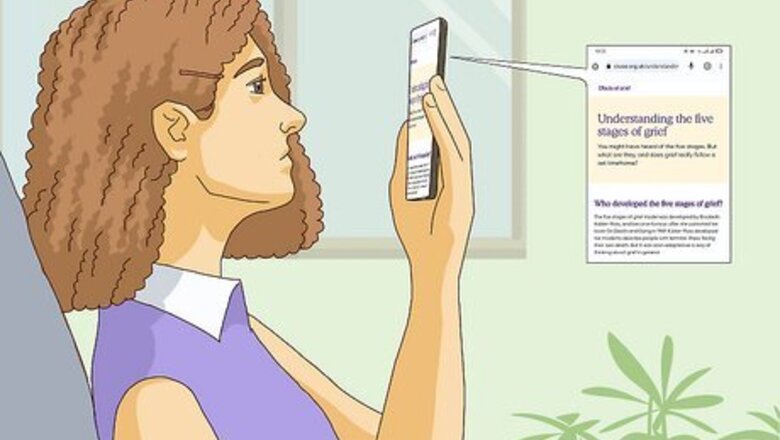
views
Grieving the Relationship

Understand the five stages of grief. These stages could more accurately be described as cycles. You may skip stages, never experience other stages, and you can find yourself stuck in stages. But you may experience some or all stages in waves repeatedly. These stages are: Denial and isolation: This stage involves denying the reality of the situation. It is a natural response to overwhelming pain caused by grief. Anger: This stage emerges once the denied pain starts to surface. Anger can be aimed at inanimate objects, strangers, family or friends. You may feel angry at the person who died or left, and then you may feel guilty for feeling angry. Bargaining: In this stage, you may feel like you need to regain control from feeling helpless. You might worry about how you should have been a better person, or you should have gotten help sooner, and so on. Depression: This stage brings sadness and regret that comes with the realization that the loved one is truly gone. You may feel overwhelming sadness, crying, and so on. Acceptance: This stage may be characterized by reaching a state of calm and withdrawal. Some people may never reach this stage of grief.

Acknowledge your grief. The relationship has, in fact, died. Therefore, it is okay to feel as though someone precious has died. You are entitled to feel your loss. Ride the waves of grief without getting pulled under or lost in them. Don’t fight them. Recognize them for what they are: waves of emotion that will take you through some strange currents for a season all the while giving your heart space to heal. Grief is part of healing. Even if no one else in your life knows what you are experiencing, you can still acknowledge your own pain to yourself. When you feel down, take a moment and say, “I’m sad, and it’s okay. It gets better.” Reader Poll: We asked 291 wikiHow readers who’ve been through a breakup, and 75% of them agreed the best way to move on is by giving yourself time to grieve. [Take Poll]

Share your grief with others. While those around you may not understand the depth of what you are feeling, don’t be afraid to share your grief with a couple of people you know you can trust.
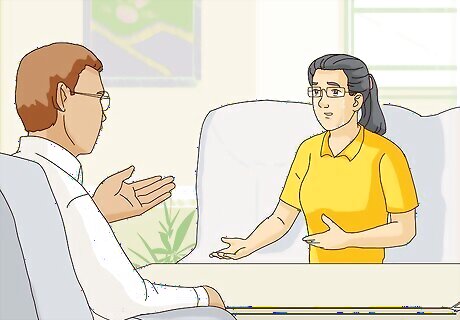
Seek professional help if you need it. If you are concerned that you may be grieving unhealthily or that you are depressed, you may want to seek professional help. A therapist can help you understand your grief and whether you are becoming depressed. Read “How to Get Rid of Depression” to better understand depression. It can be useful to talk with a therapist even if you’re not depressed. A therapist can help you understand how to work through your grief.
Handling the Passage of Time
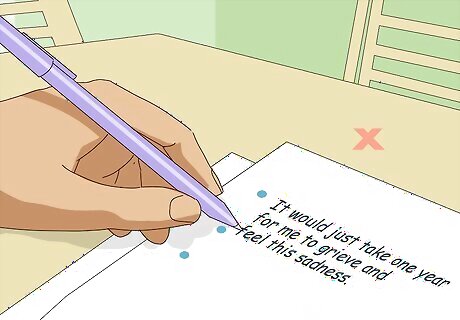
Commit to not rushing yourself. The old adage “time heals all wounds” is true. However, healing is promoted by realistically facing the emotion and giving yourself time to recover. We may want a quick fix, but ultimately quick fixes don’t exist where real love did. Accept the healing time offers and commit to not rushing yourself.

Take one day at a time. Tackle that mountain of time in small bites. You can push the pause button on planning long-term goals. This is truly a time for one day at a time.

Celebrate small victories. You may still feel pain, but you may soon notice that it is less intense. Recognize the monumental step of healing for what it is. It’s a promise of better days.

Let yourself think about something positive. Find the balance that is healthiest for you of allowing sad moments while letting in new happy ones. When a wave of negative emotion hits, give yourself a moment (literally maybe just a single minute) to feel what you feel. Then, choose to move your thoughts on to something more positive. For the record, it’s okay to laugh when grieving. Your emotions are merely recalibrating. Believe it or not, your emotions are doing exactly what they should be doing. That said, sometimes the recalibration process hits a snag and we may find ourselves dealing with depression, which is a serious matter.
Remembering Your Relationship
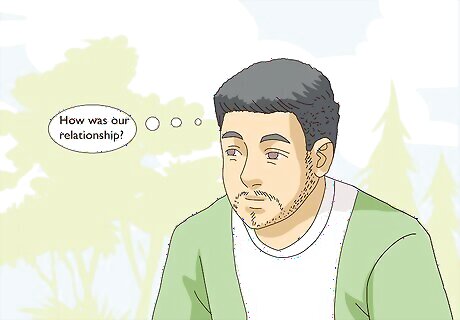
Evaluate your love with an honest lens. Once you get over the initial grief of losing this person, it is a good time for a truthful look at your former relationship. Start by recognizing what existed. If you have lost the loved one because of death and are trying to move forward with your life, you may discover that you have idealized your relationship with your loved one, overlooking the times that weren’t so great in favor of the times that were. You are not dishonoring your loved one by recalling these less than ideal times. You are, instead, remembering the real and true person. If love existed between you, then part of what made the love so special was all of the in-between moments, and the ways you were able to work through differences. Don’t place this person unnecessarily on a pedestal in death. Holding him up so high can keep you from holding him close in your heart and moving forward, which is not what he wanted for you. If, your loss was relational rather than from someone passing, the same applies. Your relationship was not perfect. If it had been, you wouldn’t be trying to move on. Even if they were the one to cut things off, it still reveals some frailty to the relationship, and that is okay.

Be honest about the highs and the lows. Your relationship, like most, probably had a series of high and low moments. If you were not the one to end the relationship, you may find yourself idolizing it a bit. It is okay to look back and remember the good times. But it’s important to be realistic. There were not-so-good times as well. Appreciate the positive aspects of the relationship, and how the other person contributed to who you are now.
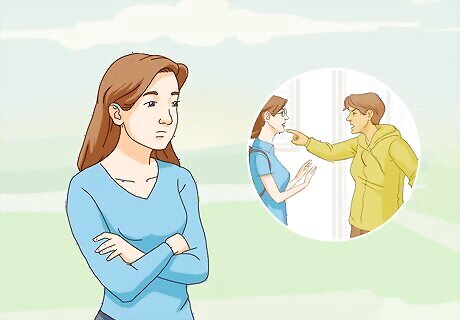
Recognize the parts that may have been damaging for you. It’s important to acknowledge the characteristics of the relationship that brought out the worst of you. This doesn’t mean that the other person was bad. But it can show you that there were some toxic elements when you were together. Once you have recognized these toxic elements, you can appreciate the chance to “detoxify” a bit. This will give you a chance to work on avoiding those pitfalls in other relationships. It will also help reframe your perspective of what you have lost. It helps you to give it a proper place in your thinking so you are free to move on.

Don’t dwell on the bad parts. Being honest about the relationship and the other person is important in reconciling your current emotions and your attempt to let go and move on. But it is important to avoid vilifying the other person, even if he treated you poorly. Too much dwelling on the past can be harmful. Assigning negative connotations or dwelling on particularly darker moments can strengthen emotional ties to the thoughts of that person, making them hard to let go. In fact, your love can turn to resentment. This doesn’t free the person from your heart. It only frees him from your kindness. You deserve to be totally free to move on, so be cautious about giving him even the negative pieces of your heart.
Interacting With Other People
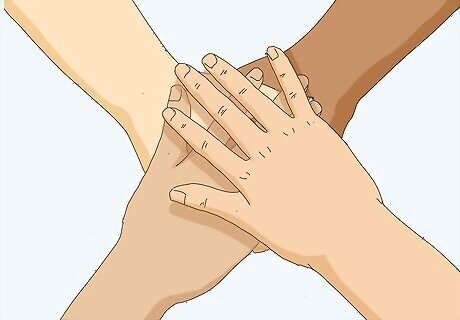
Reconnect with your closest supporters. Isolation is normal and okay for a short time. But it is vital that you don’t isolate yourself from your closest supports for more than a short time. They love you and need to know you are alright. They know you better than you do yourself at times. They can help you get back to who you are at your best. These are the people who know how to be silent with you and know when to push you to step out and have fun. They know how to make you laugh, and they are supportive when you need to cry. You don’t have to let everyone in, but trust those closest to you. These people can also help you recognize if your grief goes into depression and if you need professional supports.
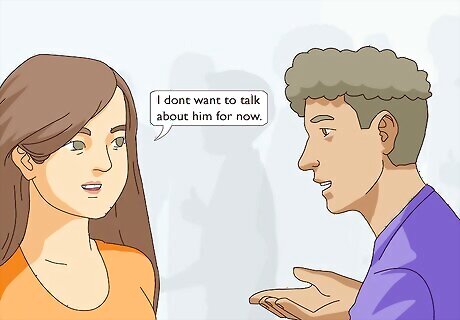
Set boundaries for conversations. Your friends and family might tread over the topic of the other person without realizing how much you are struggling. It is okay to let friends know when you need a change of subject. Just be honest and let them know that you need time. Be specific about what hurts you and what you would like to avoid for the time being.
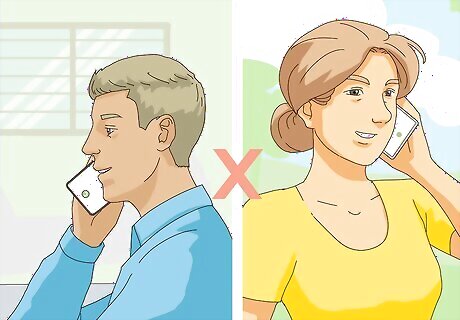
Set boundaries for interactions. It’s important to know your pain threshold and protect yourself. Perhaps you agreed to be friends with your former loved one, but the “friendly” phone calls are painful. Be honest about how you’re feeling. You may need to totally separate while you give yourself time to heal.

Accept invitations to socialize with acquaintances. Most likely you have coworkers, classmates, or even friends and family who are just outside of the “close supports” category. They may not be the ones you spill your guts to, but they still play a part in your life. It is perfectly fine to turn down your coworker’s invitation to lunch for a spell, but then it will be time to let these people be the lighthearted, friendly, distraction-from-life they were before. These supports generally come with natural boundaries you have already established. You tend to avoid deeply personal conversation, and keep things fun and on the surface. They won’t expect you to trudge into emotional trenches over your 30-minute lunch break.

Let new people in. This isn’t about replacing what was lost. Rather, it’s about moving on. Once you find yourself dealing less and less with your grief, you find your mind less preoccupied with the person you’re letting go of. Now it is time to be open to new people. New people are exciting. You do not, under any circumstances, have to get out there and date in order to move on. In fact, even thinking that way may terrify you at the moment. So let’s dial back the intensity and reframe this in a comfortable way. Instead of diving into the dating scene, dive into the possibility of new friendships. Friendships can take on so many wonderful forms. Some friends are more like family. Sometimes friends move past friendship and become romantic partners. Sometimes friends simply remain friends. Regardless of where a new friend fits, you can’t go wrong by being open to having more of them.
Expressing Yourself

Talk out your emotions. Emotions can overwhelm and even silence a person. It is time to find your voice. Talk things over with a family member, friend, counselor or minister. There are times when something is so personal that it can be hard to open up to those who know us. You may consider making an appointment with a counselor or clergy member. Feelings have a way of jumbling up, making them difficult to articulate. An objective third party individual can help by asking you the right questions to untangle your emotions without inserting their own opinions. The important part here is to simply start talking, rather than getting stuck in your own head where there is no one to help validate or correct your thoughts.
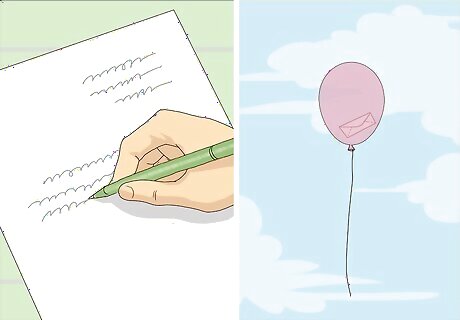
Write a letter to the person. Write a letter to your loved one. Then, let it go to signify your own mental choice to let him go. Some people find it cathartic to burn their letter, signifying a definitive end. Or you may prefer something more considerate of the place this person will always hold in your heart. This may be more appropriate if you are letting go because this person has passed. You might prefer placing your message in a helium filled balloon and setting it free. Another option is creating a sky lantern with words of love written on it and sending it off as though mailing your loved one.

Write about your feelings in a journal. You may also choose to journal your feelings. Give space to the feelings you feel now, as well as the ones you hope to restore. Journaling allows you to be completely honest with yourself because your words are for your eyes only. This practice also helps you to identify patterns in your thinking, your actions and behavior.

Make a change just for you. Changing even the slightest thing in your life can help you feel refreshed and remind you that life is still fun. Rearrange your furniture. Try a new haircut. Drive a different way to work. Eat dessert first. Whatever you choose to change, no matter how small, pick something enjoyable. It may only be a temporary mood lifter, but that may be all you need to remind yourself that you can still smile and enjoy life.
Moving On With Your Life

Live your own life. You’ve grieved and you’ve used your time to honestly consider the relationship. You have learned to honor your emotional limits as well as to challenge them. You have begun to let people in and you have found your voice. Now it is time to move on. Honor your loved one’s life by living your own. His love impacted you because of how he lived, not how he died. Continue his legacy of love and live by giving yourself to the paths of love and life in front of you. Too often, people allow their grief to drain them of the best characteristics they shared with the one who passed. Instead, let their love with you continue on by allowing them a happy place in your memories. Learn to smile again and laugh again when recalling your loved one. They can continue to bring you joy in those memories. Humor heals.

Determine if you’re still in the rebound phase. While it is important to give yourself time to heal from the broken relationship, at some point you will feel ready to let someone else in. However, you don’t want to be the one carrying old baggage into a new relationship, whether the relationship is friendship or romantic. Think about whether you are free from thoughts about this former love. If you still think of him even a couple of times a day, then you could still find yourself in a rebound relationship. Even rebound friendships can be a problem because you are experiencing a temporary gap in your emotional needs and may be gravitating to someone who fills that need. But this relationship will not likely be a good overall fit. In fact, he truly may have nothing else to offer you.

Figure out how much you think of this person. Are you able to go to places you used to frequent with your former love and not immediately think of him? If your world still screams his name, then you probably need more time.
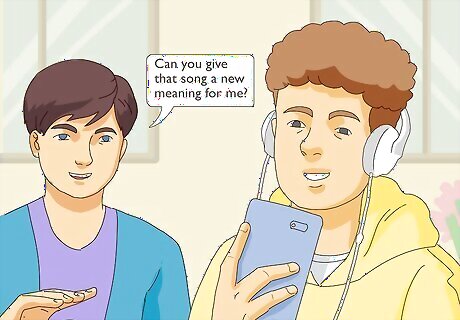
Tie memories to new experiences. Until you are ready, it is okay to avoid places that still sting of the person you are learning to let go of. But keep in mind that pain is layered. While avoidance is okay in the beginning, eventually you’ll want to challenge yourself to heal completely. Consider revisiting old venues with a trusted friend. Then you can start to create new memories and associations. Start with where you are comfortable, and slowly begin to rewrite your own memories and stories. Those places can still be special. When that one song comes on the radio, do you still think of that person? If so, it may be too early to move on. You may need to reclaim that memory by tying it to new experiences. Try sharing the song with your friends and ask them to help you give it new meaning. Make it funny. Remember, humor heals. If you love the view from a certain restaurant, then meet a few of your best friends there. Laugh, enjoy yourself and start connecting that place to joy again. Peel back the layers bit by bit, and give them new and positive meanings in your life.

Monitor how you react when someone says your loved one’s name. When someone says your former loved one’s name, do you still feel a stab of pain? When you notice that feeling of pain, remind yourself that you wish him well. It may seem silly, but this can help reprogram your automatic thoughts about that person.

Gauge your emotional reaction if you see your former love. If you were to run into your former love with his new love, how strong would your emotional reaction be? Would seeing him happy feel hurtful for you? Are you free to be happy for him? Have you let him go? A little bruising is to be expected, and like a physical wound, you may be healed, fully functional and ready to get back out there. Just make sure it’s no more than a little bruise before you do.

















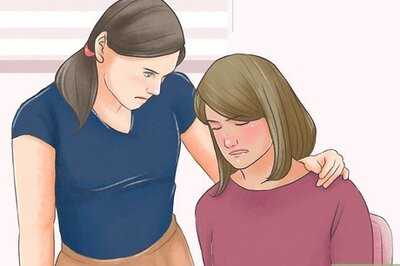


Comments
0 comment